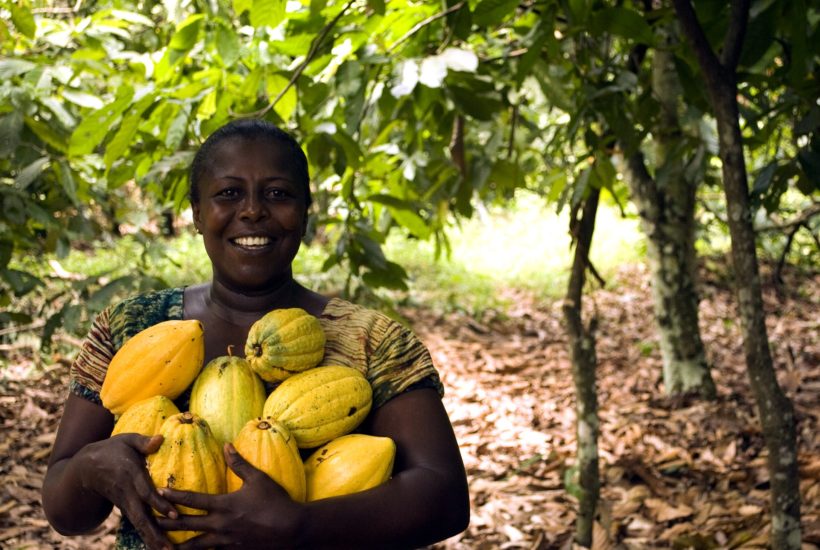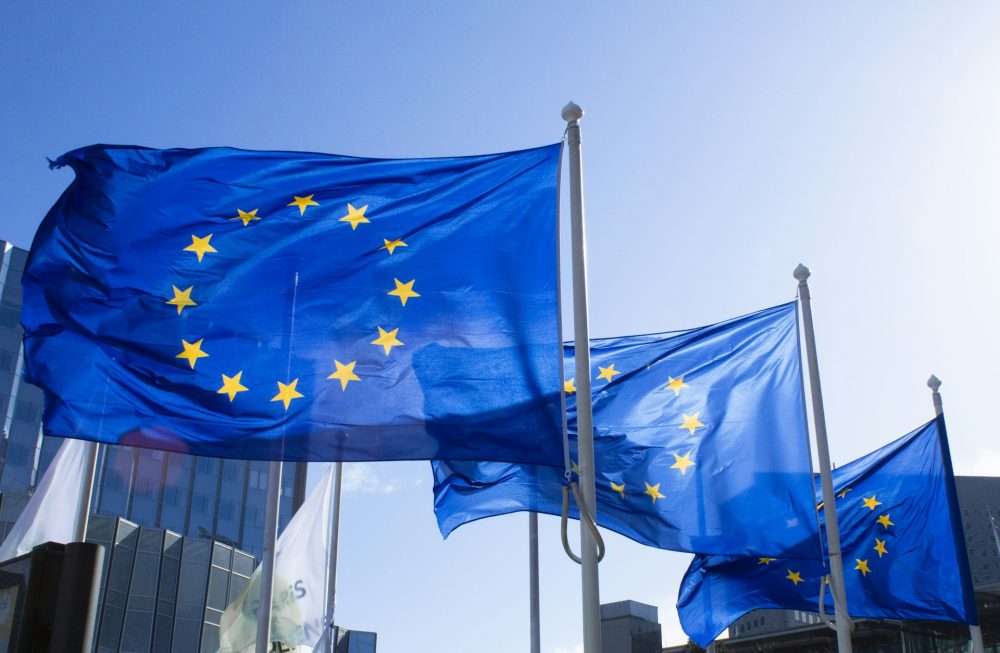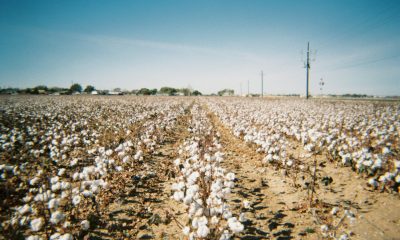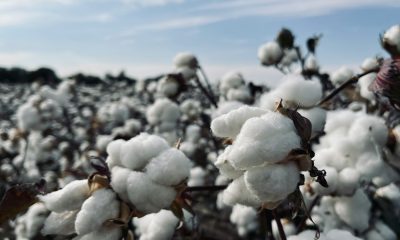Africa
The new coronavirus outbreak has hurt commodities prices
With the coronavirus crisis, the price of cocoa plummets, gold and copper suffer. These stock market crashes are also bad news for Africa, because a lot of families are dependent on selling cocoa in order to survive. So far, gold was considered a safe haven in times of uncertainty, and the recent decline in prices took investors by surprise. Other precious metals have also had a bad week.

Many commodities saw their prices fall during the past week. The Covid-19 pandemic continues to worry the markets about its economic consequences, and the markets hate instability. This is bad news for Africa, a continent teeming with the precious wealth that allows families to survive.
The demand for cocoa is still strong
Cocoa has been battered in the markets this week, with investors questioning the imbalance generated by abundant supply in the face of slowing demand.
On the producer side, “the harvest is now almost complete for the main crop in West Africa and the results are very good,” Price Group analyst Jack Scoville said in a note. This region of the world is critical for cocoa as Côte d’Ivoire and Ghana together account for more than half of the world’s cocoa market.
“Demand is still strong, but less than before,” Scoville said, a situation that could undermine the prices of this product, which allows millions of small African producers to survive. They have already suffered a lot, especially since the two producing countries are not processing countries.
In London, a tonne of cocoa for delivery in December was worth $1,976 (£1,693), after hitting a low in almost seven months, compared to $2,020 (£1,743) the previous Friday. In New York, a tonne for delivery in May was worth $2,203 (£1,900), a level not seen since September, compared to $2,482 (£2,141) seven days earlier.
The recent gold plunge was unexpected
The recent decline in gold was “a huge surprise,” according to Joni Teves, an analyst for UBS, as the yellow metal is generally considered a safe haven in times of uncertainty. With equity and oil markets tumbling, investors may have been tempted to sell the yellow metal, which had reached a seven-year high ten days ago.
Other precious metals also had a grey week, notably platinum, which fell on Monday, March 16th, to a level not seen since 2002. Palladium, on the other hand, reached on the same day its lowest level since December. And it had already lost nearly 30% last week.
On Wednesday, March 18th, silver fell to its lowest level since 2009 and copper to its lowest level since January 2016, despite signs of recovery in the Chinese economy. “The roller-coaster ride is not much compared to what’s happening on the commodity markets at the moment,” Briesemann summed up, stressing the fate of the red metal.
China’s economic recovery brings a ray of hope
On Monday, March 16th, China, the world’s largest importer of commodities, unveiled a series of gloomy indicators for January and February against the backdrop of the Covid-19 pandemic: industrial production contracted by 13.5% for the first time in nearly 30 years, according to the National Bureau of Statistics (NBS).
A glimmer of hope, the situation in China improved during the month of March. The powerful planning commission said on Tuesday, March 17th, that more than 90% of activity has resumed outside Hubei province, the province most affected by the COVID-19.
Investor concerns are now focused on the United States, “the world’s second-largest importer of many metals” according to Commerzbank analyst, which “will experience a temporary interruption in demand”.
__
(Featured image by dghchocolatier via Pixabay)
DISCLAIMER: This article was written by a third party contributor and does not reflect the opinion of Born2Invest, its management, staff or its associates. Please review our disclaimer for more information.
This article may include forward-looking statements. These forward-looking statements generally are identified by the words “believe,” “project,” “estimate,” “become,” “plan,” “will,” and similar expressions. These forward-looking statements involve known and unknown risks as well as uncertainties, including those discussed in the following cautionary statements and elsewhere in this article and on this site. Although the Company may believe that its expectations are based on reasonable assumptions, the actual results that the Company may achieve may differ materially from any forward-looking statements, which reflect the opinions of the management of the Company only as of the date hereof. Additionally, please make sure to read these important disclosures.
First published in LeMonde, a third-party contributor translated and adapted the article from the original. In case of discrepancy, the original will prevail.
Although we made reasonable efforts to provide accurate translations, some parts may be incorrect. Born2Invest assumes no responsibility for errors, omissions or ambiguities in the translations provided on this website. Any person or entity relying on translated content does so at their own risk. Born2Invest is not responsible for losses caused by such reliance on the accuracy or reliability of translated information. If you wish to report an error or inaccuracy in the translation, we encourage you to contact us.

-

 Cannabis1 week ago
Cannabis1 week agoAurora Cannabis Beats Expectations but Faces Short-Term Challenges
-

 Crowdfunding5 days ago
Crowdfunding5 days agoSavwa Wins Global Design Awards and Launches Water-Saving Carafe on Kickstarter
-

 Biotech2 weeks ago
Biotech2 weeks agoAsebio 2024: Driving Biotechnology as a Pillar of Spain and Europe’s Strategic Future
-

 Business11 hours ago
Business11 hours agoDow Jones Nears New High as Historic Signals Flash Caution
























